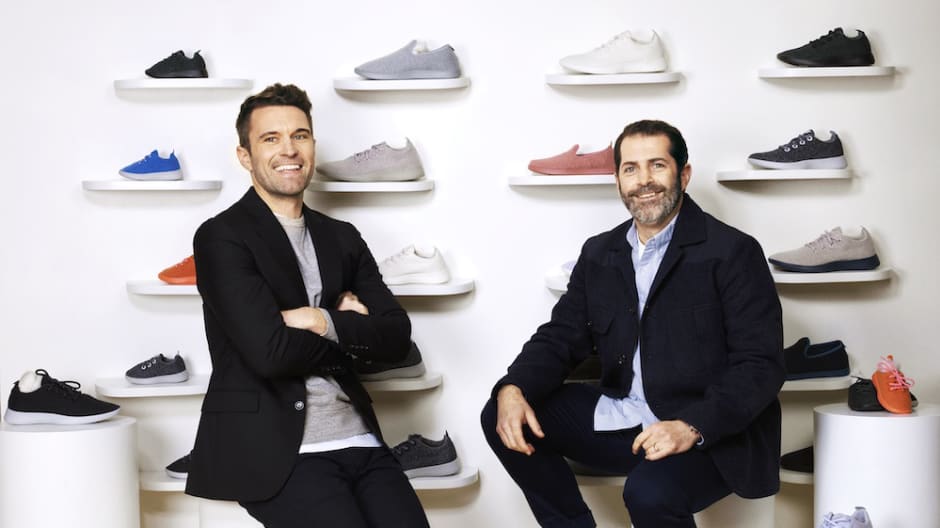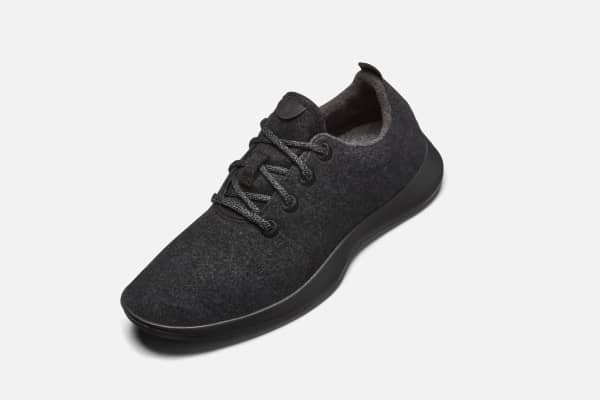
In 2012, Tim Brown called it quits on an eight-year professional soccer career that included a trip to the 2010 FIFA World Cup as New Zealand’s vice captain. After retiring, one thing from Brown’s playing days would not stop bugging him: the sneakers.
Throughout his playing career, Brown’s teams (he played in the U.S., Australia and New Zealand) were sponsored by big-name sneaker manufacturers like Adidas and Nike. But Brown felt the sneakers he wore on and off the field were often too flashy, awash with too many different colors and packed with corporate logos.
He wanted something simpler. So, he decided to make his own.
Today, Tim Brown, 37, is co-founder and co-CEO of Allbirds, the San Francisco-based sneakers start-up that’s taking the world by storm, one pair of feet at a time. The billion-dollar company’s shoes are famous for being both unbelievably comfortable and constructed with natural, environmentally friendly materials like merino wool and eucalyptus tree fiber.
Google reviews of Brown’s increasingly ubiquitous footwear include phrases like “shockingly comfortable” and “they’re like slippers made of clouds.”
Not only are Brown’s sneakers cozy and sustainable, they’re also minimalist in look and sales strategy. Allbirds sells only about half a dozen varieties of its shoes in solid, often understated, colors such as “Natural Grey” or “Tuke Honey” (which shares the name of a New Zealand river). That model stands in contrast to much of the $64 billion global athletic footwear market, where companies like Nike and Adidas churn out hundreds of varieties of shoes with endless options for customization while “sneakerhead” culture creates a market for flashy collaborations involving brands, athletes, celebrities and designers that can see the most coveted shoes sell for thousands of dollars per pair.
“I had a very, very simple insight that shoes were over-logoed, over-colored and changed all the time for no reason,” Brown tells CNBC Make It. “And, it was very, very difficult to find ‘simple.’ And I set out to solve that.”
Nearly all of Allbirds’ shoes sell for $95 per pair (high tops released in November go for $115) and Brown says the company sold its 1 millionth pair just two years after officially launching in March 2016.
A $200,000 grant and a dream
Raised in New Zealand, Brown attended the University of Cincinnati on a soccer scholarship as a teen before embarking on his professional career. When he decided to put aside professional athletics at age 31, he returned to school to study business and, in 2013, he earned a master’s degree in management, with honors, from the London School of Economics.
Brown had spent the final few years of his soccer career mulling over the idea of creating his own line of sustainable sneakers — he even remembers spending time in the offseason researching footwear factories online. No footwear company had yet made a running shoe with an all-wool upper (in footwear parlance, the “upper” is the entirety of the shoe that encases your foot and connects to the sole). But Brown, who lovingly refers to New Zealand “the land of 27 million sheep” (it’s the world’s second-largest wool exporter), grew up wearing homemade wool sweaters and socks. So his sneaker idea took focus around the natural material that Allbirds describes as “breathable, temperature-regulating, and moisture-wicking.”
With a $200,000 development grant Brown won from a New Zealand wool industry research group and help from a group of New Zealand government agricultural scientists, Brown developed a patented wool shoe material that had the necessary strength to endure the wear and tear of footwear, while still being extremely comfortable and non-itching.
The result is a super-fine wool from the South Island of New Zealand that is the same quality level used to make luxury men’s suits for labels like Tom Ford, Giorgio Armani and Gucci, Brown says. Allbirds are knitted in Italy with proprietary technology and have soles made from a combination of rubber and foam (as well as more-sustainable castor bean oil-based components) that is both lightweight and resilient enough for running.
The name, Allbirds, is also a nod to New Zealand — it references the fact that the island-nation’s first settlers found hardly any mammals when they arrived in a land of “all birds,” Brown says.
In March 2014, with prototypes in hand, Brown launched a Kickstarter campaign.
“Quite honestly, I wasn’t sure if this problem I was trying to solve personally was going to be a problem that other people had, and that was a way to test that theory,” Brown tells CNBC Make It.
The campaign described Brown’s minimalist sneakers as “a world first: woolen running shoes specifically designed for sockless wear.” The Kickstarter profile touted the shoes’ comfort and utility — “as comfortable in a pair of jeans as they are in the gym” — as well as their machine-washability and the idea that the primary material, wool, offered “natural, renewable and biodegradable benefits” typically not seen in a footwear category that, traditionally, has a sizable carbon footprint due to the excessive amount of chemicals and carbon dioxide used in the manufacturing process.
Brown was looking to raise $30,000; the campaign shut down within four days after selling 1,064 pairs of Brown’s Wool Runners and raising nearly $120,000 from over 950 investors.
Brown was thrilled and encouraged by the response but also caught off guard. “I had to stop the campaign, because that was all the material that we had,” he says.
“You celebrate for a split-second and then you realize that ‘Gosh, there’s an enormous amount of work to do, an enormous amount of expectation that’s come on the back of this little bit of success I’ve had,'” Brown says. “So, it was very, very quickly about heads down, trying to work out how to deliver this to customers.”
[“source-cnbc”]


